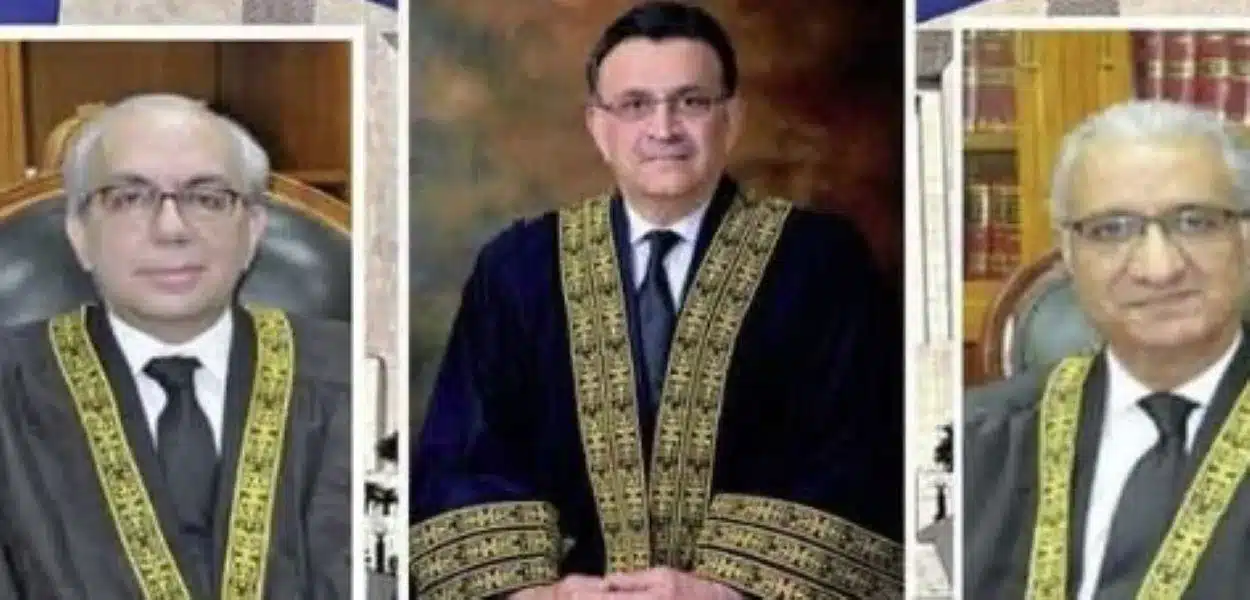A three-judge panel hearing the PTI’s petition against the delay in Punjab elections deemed the Election Commission of Pakistan’s (ECP) decision to postpone the provincial assembly elections until October 8 as “illegal.” The court ordered the government to release funds for the elections by April 10.
The Supreme Court (SC) received a report from the Ministry of Defence, submitted through the Attorney General of Pakistan, Mansoor Awan, detailing the availability of security personnel for election duties. After reviewing the report, the SC reinstated the previous election schedule of April 30.
The bench, led by Chief Justice of Pakistan Umar Ata Bandial and including Justices Munib Akhtar and Ijazul Ahsan, underwent a week of hearings. Two judges from the original five-member bench, Justices Jamal Khan Mandokhail and Aminuddin Khan recused themselves from the case, leading the chief justice to form a new bench.
Read: Pakistan Supreme Court to announce verdict on election delay ase
The government requested the formation of a full court to hear the case and sought to dismiss the PTI petition based on a “4-3” order issued by the apex court on March 1. However, the SC bench appeared frustrated by the government’s lack of confidence and refused to hear arguments from the ruling parties’ lawyers before reserving the verdict.
PML-N lawyer Akram Sheikh, who appeared before the Supreme Court to assist, stated that he had the utmost respect for the apex court. The chief justice acknowledged his respect for Sheikh, Farooq H Naek, and Kamran Murtaza but noted the ruling parties’ lack of confidence in the bench hearing the case.
During the hearing, the chief justice emphasized the importance of harmony among judges. Meanwhile, Justice Akhtar suggested that if the “4-3 verdict” logic were accepted, the case would be returned to the original nine-member bench. On the other hand, justice Bandial observed that the dissenting judges’ notes did not mention the bench’s reconstitution.
Previously, the court directed the defense secretary to submit a classified report explaining the unavailability of armed forces for security duties in the general elections of provincial assemblies.






